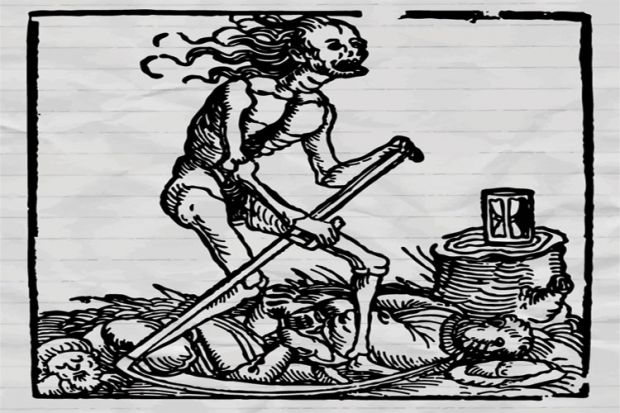Speakers ranging from the University of Cambridge vice-chancellor to the former Archbishop of Canterbury are taking part in a weekly series of eight multidisciplinary lectures about plagues to mark the fiftieth anniversary of Darwin College, Cambridge.
Opening the series on 24 January with a lecture on “Plagues and Medicine”, Cambridge vice-chancellor SirLeszek Borysiewicz noted the historical significance of plagues.
The Black Death, he explained, “marked the end of the feudal system”, since “the church hierarchy locked themselves away while the friars stayed within society…Probably the church never after enjoyed the same level of respect, so the Black Death provided the intellectual framework which enabled the Reformation to take place.”
Today’s new modelling methods, argued Sir Leszek, had made it clear that “to prevent a regional and global pandemic, you must be able to detect the first 40 cases and your response has to be international from day one. The game of controlling plague has moved from one society to multiple societies.”
Yet “the age-old question about the needs of society and the rights of the individual” meant that responses to major infectious diseases have always caused controversy, he said.
“Once something is accepted, opposition comes forward as night follows day. [In the early 19th century] the House of Lords debated whether vaccination was akin to bestiality.
“Understanding how society accepts an intervention is far more complex than the biotechnical aspects. To put it more prosaically for those of you in particular schools in the university, I think that sociology, mathematics and politics are as important as biology in successful intervention.”
Thanking Sir Leszek for the lecture, the master of Darwin College, Mary Fowler, observed that “plagues can challenge everything about our society, our governance, our trust in each other, what is right, what is acceptable - and really, most of all, our mercy”.
Some of these broader issues were taken up in the second lecture, when husband and wife team Chris and Mary Dobson – respectively master of St John’s College, Cambridge and the former director of the Wellcome Unit for the History of Medicine at the University of Oxford – offered their combined insights into “Plagues and History”.
They ranged across three millennia, from the biblical plague of the Philistines to today’s “post-evolutionary diseases” such as the dementias which result from highly effective highly biochemical systems shutting down as we attain ages far greater than in the past.
Throughout history, the Dobsons argued, it was rapid changes in life styles – denser population settlements, wars, increasing speed of travel, the discovery of new worlds – which have led to sudden upsurges in diseases.
Yet long before we were able to detect and destroy the bacteria responsible for diseases, observation led people to take effective measures in improving sanitation, hygiene and water quality. Responses to the Black Death included self-flagellation and prayer, but also local authorities compelling townspeople to get out and clean the streets.
After this week’s lecture on “Silicon Plagues”, future speakers will explore topics such as “The Nature of Plagues”, “Plagues and Economic Survival” - and even whether our dominance of the planet is leading to so many global problems that it makes sense to talk of “The Human Plague”.
The series will conclude on 7 March with a lecture by former Archbishop of Canterbury Rowan Williams - now master of Magdalene College, Cambridge – designed to “take us on a journey enlightening the intellectual and spiritual impact of plague as a metaphor”.
Register to continue
Why register?
- Registration is free and only takes a moment
- Once registered, you can read 3 articles a month
- Sign up for our newsletter
Subscribe
Or subscribe for unlimited access to:
- Unlimited access to news, views, insights & reviews
- Digital editions
- Digital access to THE’s university and college rankings analysis
Already registered or a current subscriber? Login




